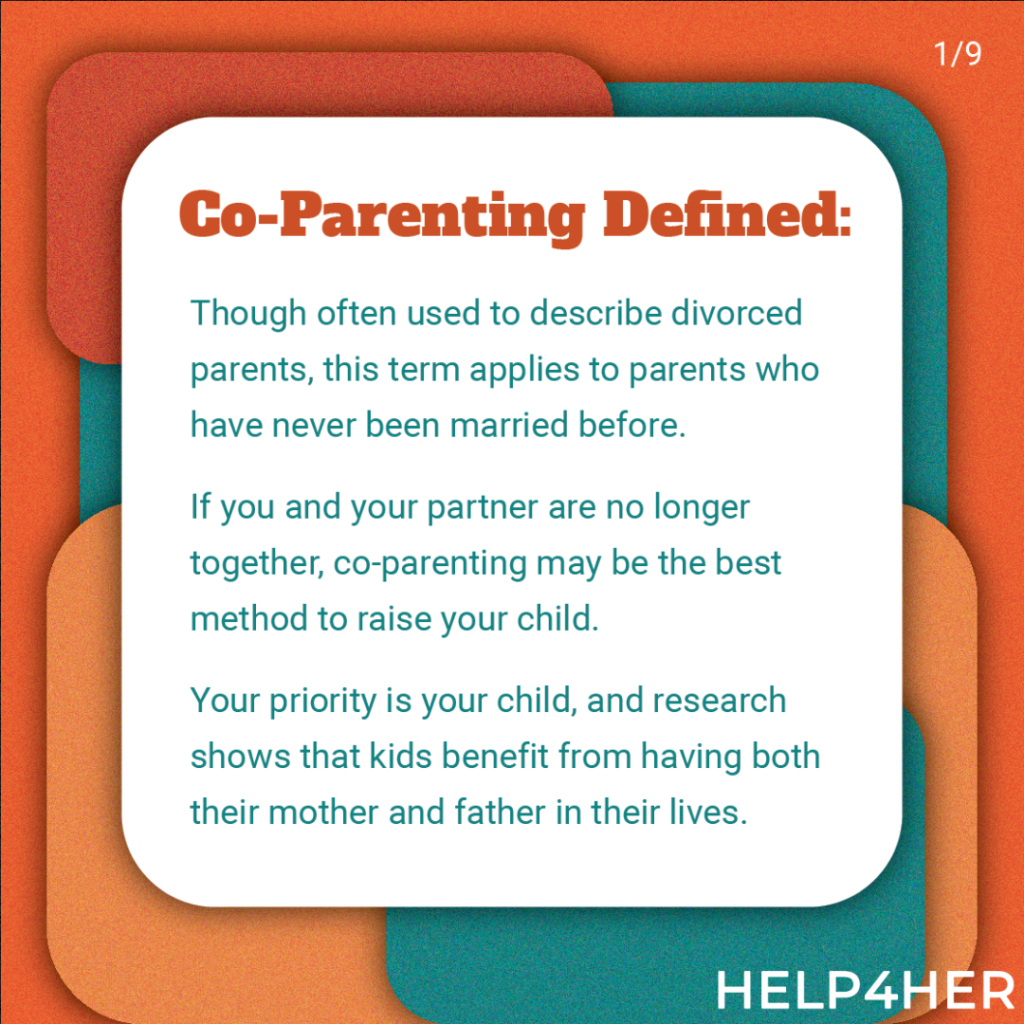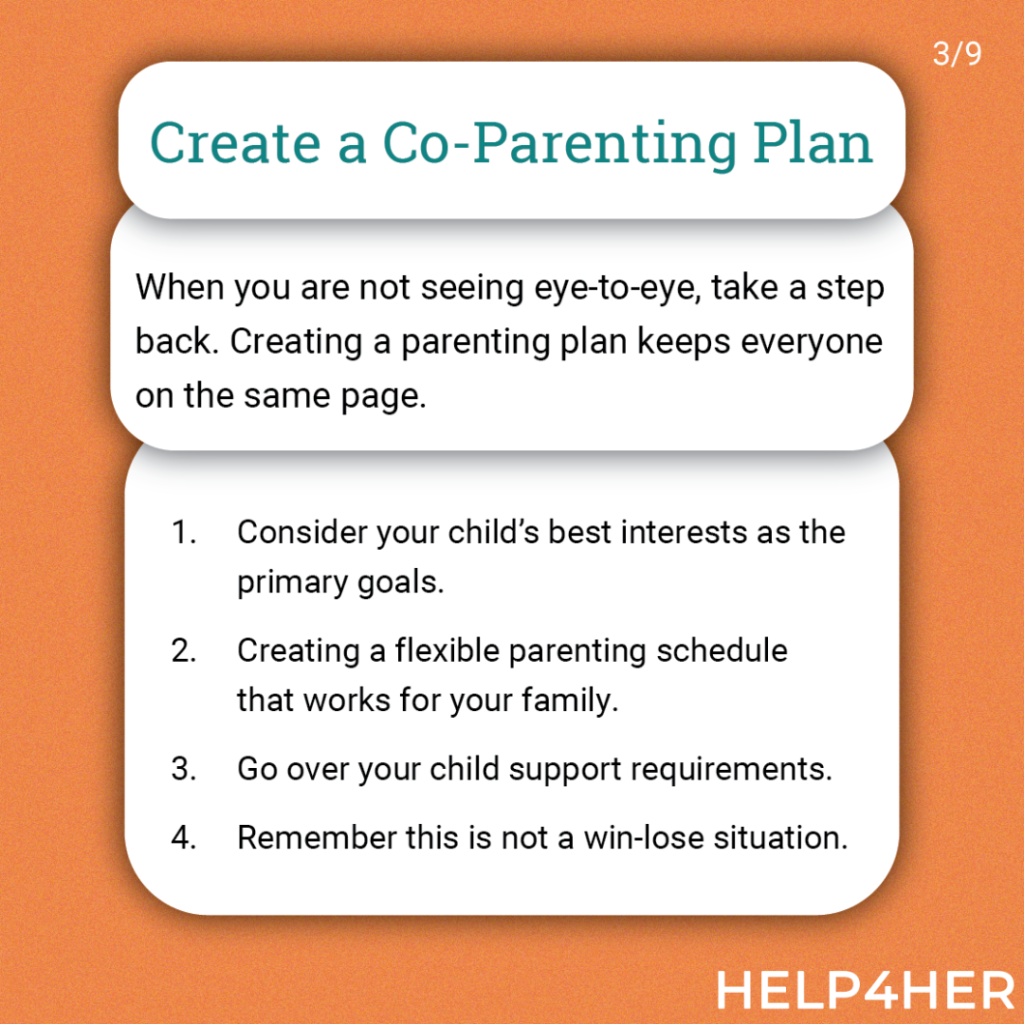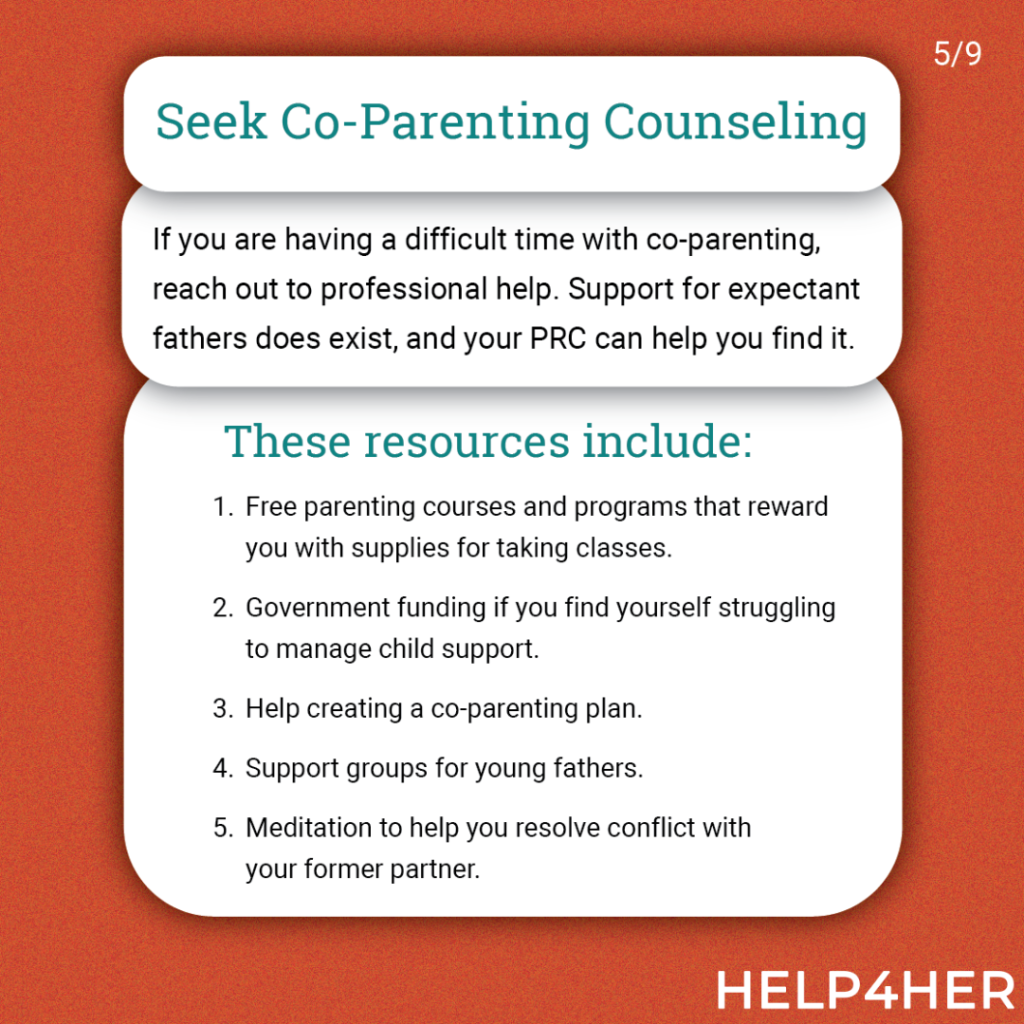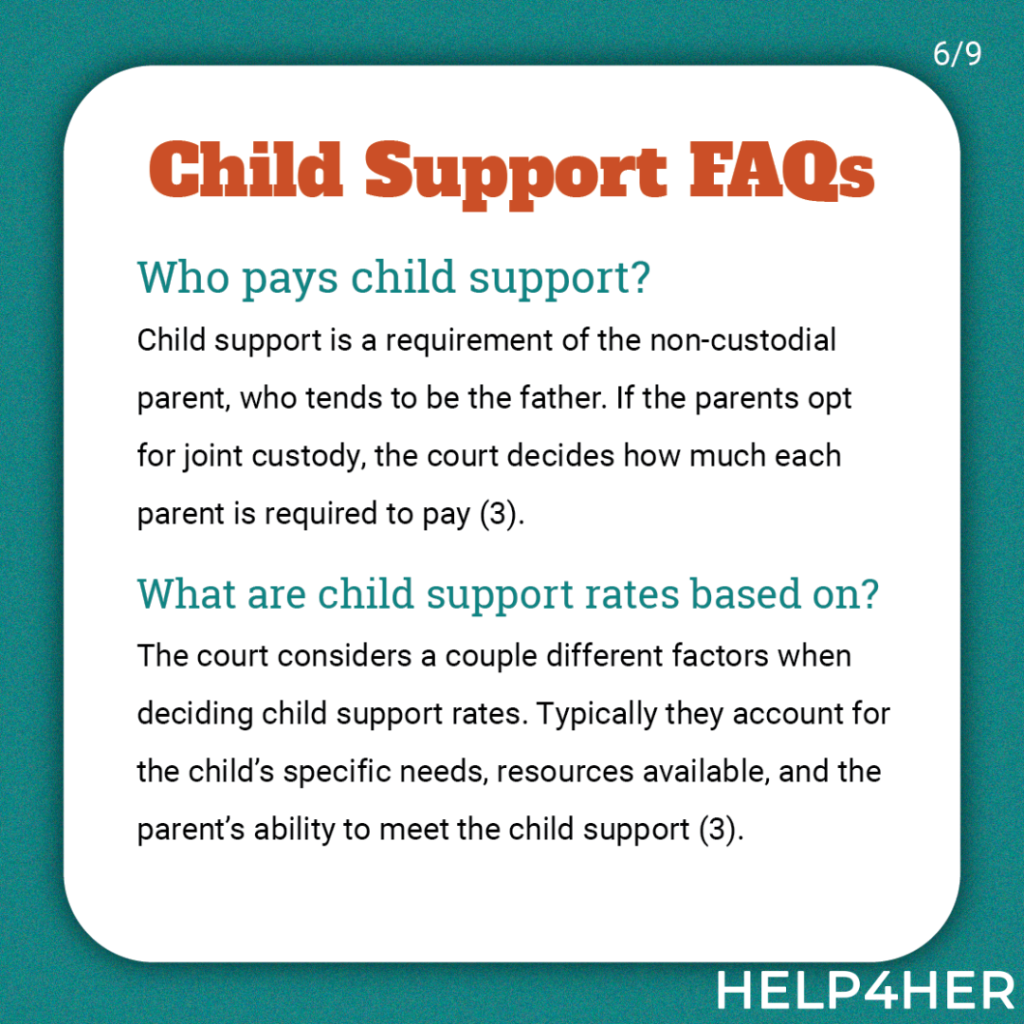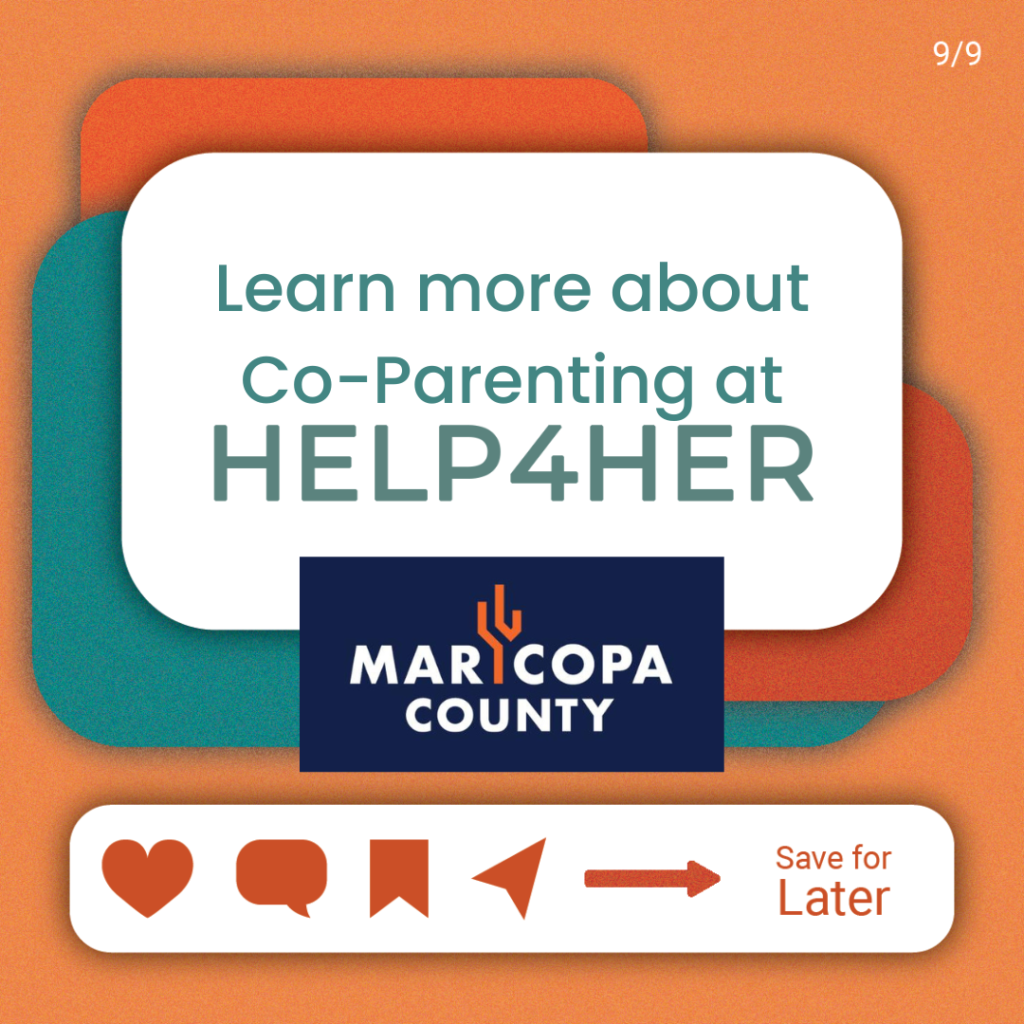Parenting is difficult. Your values and personal upbringing influence the way you raise your child. Parenting with your ex can be hard. If you’re having a challenging time co-parenting, counseling may help you.
Co-Parenting is a term that fits many relationships. Though often used to describe divorced parents, this term applies to parents who have never been married before. If you and your partner are no longer together, co-parenting may be the best method to raise your child. Your priority is your child, and research shows that kids benefit from having both their mother and father in their lives.
“Unless your family has faced serious issues such as domestic violence or substance abuse, co-parenting—having both parents play an active role in their children’s daily lives—is the best way to ensure that all your kids’ needs are met and enable them to retain close relationships with both parents.” (1)
As a father, your duty is to support your children. That means providing them with an environment in which their needs are met. You have a duty to meet the needs of your child, whether that be through child support or joint custody.
Is your girlfriend pregnant?
Need some guidance?
It takes a village.
Check out this article:
Creating a good relationship with your child’s mother may not be an easy task. Joint custody can be stressful, angering, and exhausting. Sometimes it may feel difficult to find common ground, especially if the relationship ended poorly. However, maintaining a positive relationship is important, for the sake of your children. Here are some tips that will help you create a healthy relationship with your child’s mother.
Of course there are aspects of your parenting plan that you and your ex do not agree on. When you are not seeing eye-to-eye, take a step back. Creating a parenting plan keeps everyone on the same page. Here are a few things to keep in mind as you create your plan:
- Consider your child’s best interests as the primary goals. Every kid is unique and each stage of life is different. Understanding your child’s needs helps you decide what kind of child custody will work best for you child.
- Creating a flexible parenting schedule that works for your family. This will help ease your child’s transition between separate homes and lifestyles.
- Go over your child support requirements. Child support requirements may be decided by a court order. Open communication will ensure you are on the same page when it comes to financial requirements.
- Remember this is not a win-lose situation. These decisions must be made in the best interest of the child (2). When your child is safe and well-adjusted, everyone wins.
These are important pieces to consider when making your parenting plan. Remember that different phases of life come with different challenges, so your parenting plan may have to adjust to fit.
A positive relationship between parents is one of the most important things in a child’s life. Kids see everything. They are astute observers and are able to detect a high conflict atmosphere. So it is important that you and your ex are diligent in maintaining a positive relationship. Here are some tips:
- Set aside your negative emotions. Let them go. It will only hinder your relationship with your ex, which will affect your child. Make it a point not to argue in front of your child, or they will begin to feel as though they are in the middle of your conflict (1).
- Cultivate healthy communication skills. Never use your child as a messenger. If you need to communicate with your ex, do so in an effective, polite way. Creating a business-like relationship can help set the standard of communication between you. This will help create a safe space where you can discuss the needs of your child without involving them (1).
- Learn conflict resolution skills. These skills include respect, learning to let the small stuff go, and compromise. These aren’t easy to learn, but they are important in maintaining a positive relationship.
If you are having a difficult time with co-parenting, reach out to professional help. There are plenty of resources available for you to use.
One of these resources is your local pregnancy resource center (PRC). There, you can find all kinds of support that will help you navigate this difficult time. Support for expectant fathers does exist, and your PRC can help you find it. These resources include:
- Free parenting courses and programs that reward you with supplies for taking classes.
- Government funding if you find yourself struggling to manage child support.
- Help creating a co-parenting plan.
- Support groups for young fathers. These are useful if you’d like to find other people who are experiencing similar situations.
- Mediation to help you resolve conflict with your former partner.
The importance of support from friends and family cannot be overstated. Reach out to those in your support circle for help creating a plan and maintaining your relationships.
Haven’t told your parents about your girlfriend’s pregnancy?
Check out our article for tips on breaking the news.
One major factor of co-parenting includes child support.
Who pays child support?
Child support is a requirement of the non-custodial parent, who tends to be the father. If the parents opt for joint custody, the court decides how much each parent is required to pay (3).
What are child support rates based on?
The court considers a couple different factors when deciding child support rates. Typically they account for the child’s specific needs, resources available, and the parent’s ability to meet the child support (3).
How do I change child support payments?
Child support rates aren’t easy to change. If you need to modify payments, you need to submit a request to the judge. Only the court can change the rates, but if the parents both agree on the change, it’s usually a fairly quick process (3).
What happens if I miss a payment?
Child support is important to follow through on. If you don’t live up to your required payments, the courts will become involved. This can result in consequences like jail time, seizure of property, suspension of driver’s license, and more.
If you’re having a hard time making your child support payments, there are groups like the United Way that can get you in touch with pro bono legal support. These organizations can help you get the paperwork you need and may be able to offer you legal support as well (4). Contact your local Pregnancy Resource Center to get in touch with some of these resources. Other considerations to make are to examine your lifestyle, make a budget, and reduce your expenses. Your local PRC can offer you help with budgeting as well.
Need Help with Child Support?
We have resources for you here at Help4Her.
You need to be involved in your child’s life. Parent-child relationships are some of the most important relationships we carry with us. If you are co-parenting, you need to commit to consistent communication with your former partner. A positive relationship will ensure your child grows up feeling as loved and supported as possible. That way, everybody wins.
Sources
- Block, Jocelyn and Melinda Smith. (2020, November). Co-Parenting and Joint Custody Tips for Divorced Parents. HelpGuide.
https://www.helpguide.org/articles/parenting-family/co-parenting-tips-for-divorced-parents.htm - Creating a Perfect Parenting Plan in 6 Steps. (n.d.). Our Family Wizard.
https://www.ourfamilywizard.com/blog/creating-perfect-parenting-plan-6-steps - Parker, Wayne. (2020, May 29). What Dads Need to Know About How Child Support Works. VeryWell Family. https://www.verywellfamily.com/what-to-know-about-child-support-1269626
- Fay, Bill. (n.d.). Child Support Payment Financial Help. Debt.org.
https://www.debt.org/family/child-support/cant-pay-child-support/#What_to_Do_If_You_Cant_Pay_Child_Support

